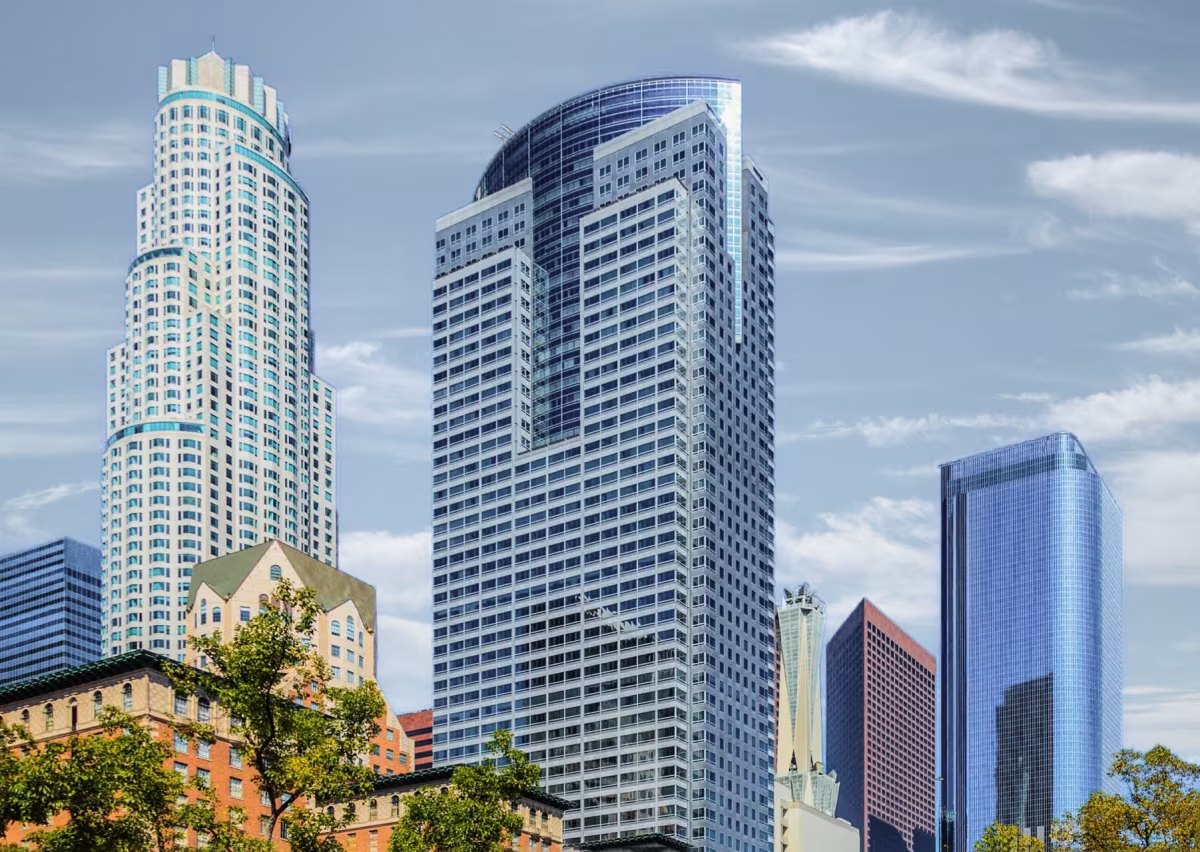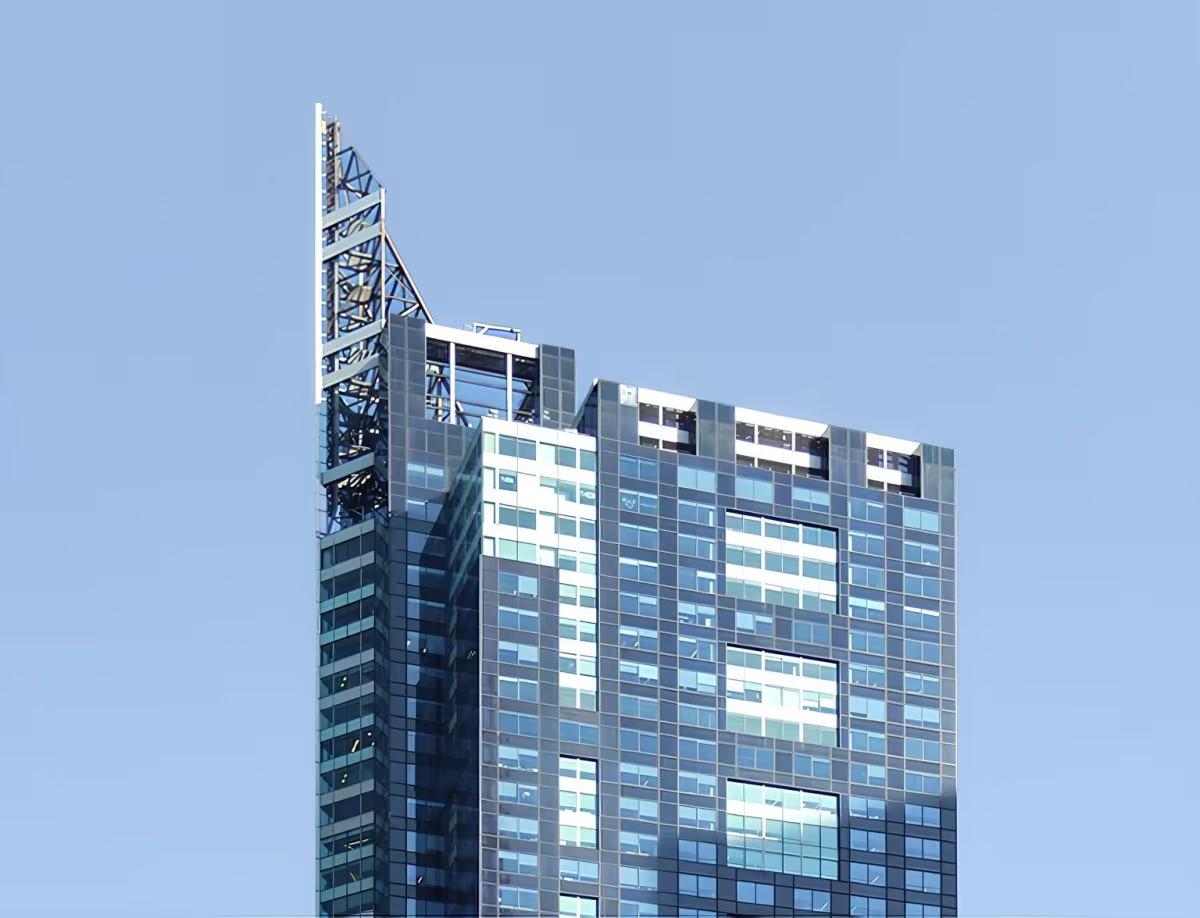Gas Company Tower vs 1540 Broadway Building


Comparing the Gas Company Tower and the 1540 Broadway Building is an interesting exercise, because even though they are located in different cities (Los Angeles, CA and New York, NY), both were designed by Skidmore, Owings & Merrill and finished within just one year apart. This gives us the chance to see how the same architect's ideas were expressed in different urban contexts almost simultaneously.
Height & Size
The Gas Company Tower is clearly the larger tower of the two, both in terms of height and number of floors. It rises to 748ft (228m) with 52 floors above ground, while the 1540 Broadway Building reaches 617ft (188m) with 42 floors above ground.
Of course, each project may have faced different briefs or regulatory constraints, which we don't really know about and could also explain the outcome.
Architectural Style
Both the Gas Company Tower and the 1540 Broadway Building were designed in line with the aesthetic conventions of the Postmodernism style.
The Gas Company Tower was designed at a moment when the Postmodernism style was already in decline, making it more of a lingering expression of the movement. In contrast, the 1540 Broadway Building style was already in decline, making it more of a lingering expression of the movement. In contrast, the 1540 Broadway Building was built when the style still carried greater cultural weight.
Uses
Both the Gas Company Tower and the 1540 Broadway Building were designed to serve as commercial towers, and that has remained their main use since their completion, serving similar roles in the urban fabric.
Structure & Facade
Both the Gas Company Tower and the 1540 Broadway Building rely on a Frame structural system.
A frame structure uses a grid of columns and beams to carry the building's loads. This frees the walls from structural duties, allowing for flexible floor plans and larger windows.
They also employ the same type of facade, a Curtain Wall facade.
A curtain wall is a non-load-bearing facade hung from the structural frame. It is anchored to floor slabs and transfers only its own weight and wind loads, allowing for sleek, glassy exteriors.
| Gas Company Tower | 1540 Broadway Building | |
|---|---|---|
| Skidmore, Owings & Merrill | Architect | Skidmore, Owings & Merrill |
| 1988 | Construction Started | 1988 |
| 1991 | Year Completed | 1990 |
| Postmodernism | Architectural Style | Postmodernism |
| Commercial | Current Use | Commercial |
| 52 | Floors Above Ground | 42 |
| 8 | Floors Below Ground | 4 |
| 228 m | Height (m) | 188 m |
| 133,026 m² | Usable Area (m²) | 100,000 m² |
| 28 | Number of Elevators | 15 |
| Frame | Structure Type | Frame |
| Steel | Vertical Structure Material | Steel |
| Concrete | Horizontal Structure Material | Poured Concrete Over Metal Decking |
| No | Facade Structural? | No |
| Glass, Steel | Main Facade Material | Aluminum, Glass |
| Turner Construction | Main Contractor | Tishman Construction |
| Thomas Properties Group | Developer | Ian Bruce Eichner |
| Frank Stella | Collaborating Artist | Karen Lemmert, Moffat Takadiwa |
| CA | State | NY |
| Los Angeles | City | New York |
| 555 West 5th Street | Address | 1540 Broadway |